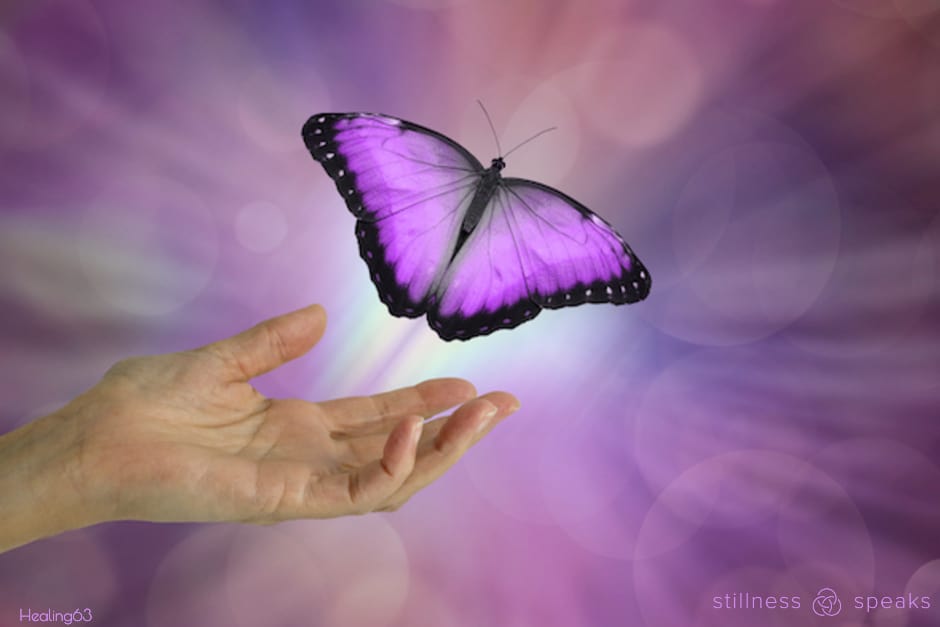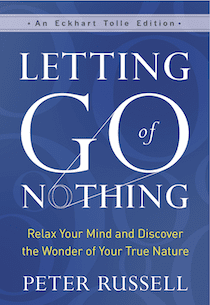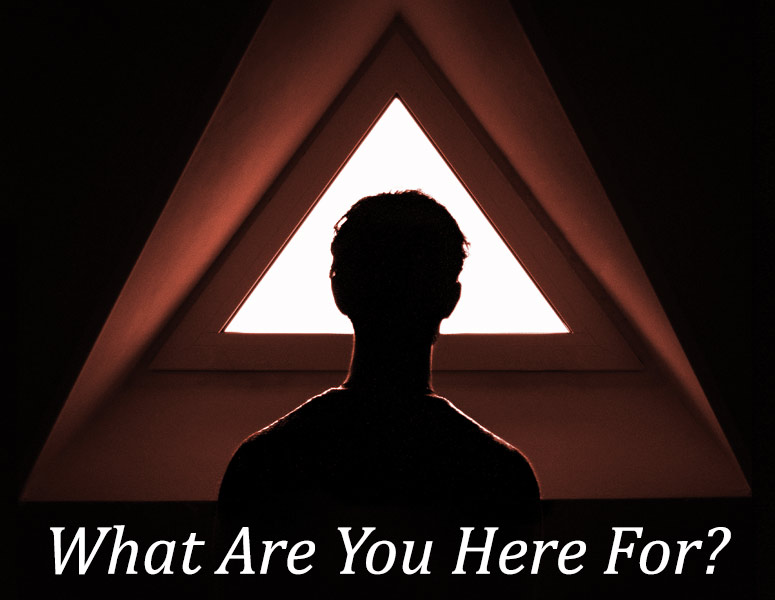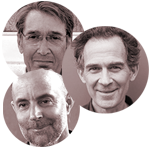letting go: “… In the end, the treasure of life is missed by those who hold on and gained by those who let go …” ~ Lao Tzu
Indeed, Lao Tzu, in his typical way, offers one of the keys to our True Nature … the key that leads to real peace … real abiding peace … inner peace …
Of course, the natural outcome of letting go is that we shed any & all barriers … to being present to what is … to this present moment … and being in the present moment is another key to real abiding peace as underscored by Eckhart Tolle : “… You find inner peace and contentment in the present moment …” …
And, here is Ajahn Chah’s classic reminder : “… If you let go a little, you have a little peace. If you let go a lot, you have a lot of peace. If you let go completely, you have complete peace …”
Lao Tzu’s quote is from Verse 75 of Tao Te Ching .. whereas Eckhart’s words are from his Foreword to Peter Russell’s latest book Letting Go of Nothing: Relax Your Mind and Discover the Wonder of Your True Nature … where, Peter takes us on a deep dive into letting go or “… what lies at the heart of the world’s spiritual traditions …” …
Peter’s book can be best summed up with some of the words of praise from various contemporary luminaries :
“… a marvelously simple, clear, and concise guide to discovering the freedom and peace of mind that is right here.” ~ Joan Tollifson
“… has distilled the essence of the traditional path of surrender into clear, simple, accessible language … Short enough to be read in a weekend, profound enough to last a lifetime, Peter’s book is a gem of contemporary spirituality.” ~ Rupert Spira
“… offers wise guidance and inspiration, pointing to the deep peace and freedom that arises naturally in moments of letting be.” ~ Tara Brach
“… shows that in order to be happier and achieve more, we must embrace the paradox of letting go.” ~ Larry Dossey
“… he invites us into his soul and value system, his application of meditation and Buddhist practice to his own way of seeing the world and self, and in doing so he summons us to ‘the deep peace of our true nature.’ …” ~ Matthew Fox
Some readers may be familiar with our past 6-part series on Seeds of Awakening : Peter’s previous book which is one of the clearest distillation of “perennial wisdom {without} the trappings of time and culture” that is very readable, engaging, deeply insightful and a treasure trove of very relatable “wisdom gems.” Turns out this latest book is an extension of Seeds of Awakening.
So, today we start our deep dive into Letting Go of Nothing with this multi-part series that offers an in-depth preview of Peter’s book through chapter excerpts … and in this Part 1, we start with the Foreword by Eckhart Tolle … which sets the stage for our series. …
This book is An Eckhart Tolle Edition, an imprint of New World Library (the publisher) … that offers “… life-changing works, both old and new, that have been personally selected by Eckhart Tolle … books that can powerfully aid in transforming consciousness and awakening readers to a life of purpose and presence.”
All italicized text below is from Letting Go of Nothing: Relax Your Mind and Discover the Wonder of Your True Nature by Peter Russell and is published here with his generous permission. Peter has also generously offered a free downloadable PDF of the Table of Contents (link is at the bottom of the post).
Here are all of Peter’s posts on Stillness Speaks … and his website – a treasure trove of wisdom: rich, diverse, and valuable content for your journey … and his YouTube channel where he posts videos regularly.
{Eckhart Tolle‘s} Foreword: Letting Go of Nothing

They all held the belief that to make any progress on the spiritual path, we need to give up everything the worldly self could attach itself to and feed on: first and foremost our material possessions but also our home, rich food, comfort, sexuality, personal relationships, and all pleasures of the senses. The idea behind it was that these practices would deprive the ego or false self of anything it could identify with, thus starving it to death, so to speak. The idea is by no means as absurd as it might appear to us in the twenty-first century, and some of these intrepid explorers of the inner realms, so it seems, did indeed attain self-transcendence and realized “the peace that passeth all understanding,” to use the words of the Bible.
It is safe to say, however, that the vast majority of them remained confined in their egoic sense of self. Many would identify with their religious belief structures, which is to say ideologies, and mistake them for “the Truth that makes you free.” Others developed a strong self-image based on their perceived spiritual status as humans who have renounced everything. In other words, the ego was able to sneak in again through the back door, as it were. Without realizing it, these spiritual practitioners had found themselves trapped again in a conceptual identity. Most of them tended to place excessive emphasis on letting go of externals, thus neglecting the inner aspect of letting go. One could say that, seemingly paradoxically, they let go of everything but failed to let go of no-thing.
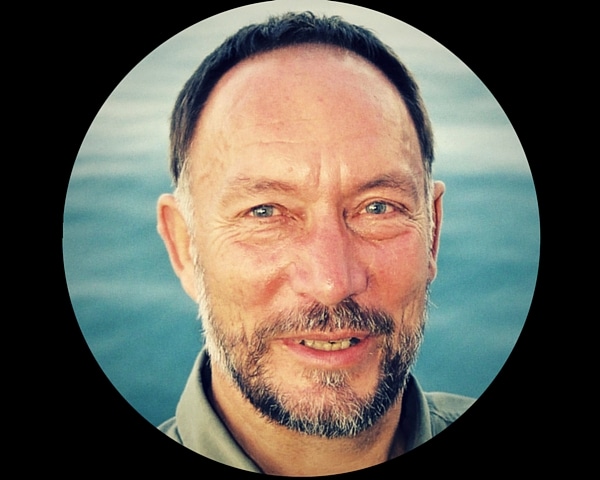
Most humans are still, almost literally, possessed by thought. They don’t think, but thinking happens to them. The beginning of spiritual awakening is the realization that you are not the voice in your head but the one who is aware of the voice. You are the awareness behind your thoughts. As this realization grows, you begin to derive your sense of identity increasingly from the space of awareness rather than from the narratives in your mind. You are letting go of the identification with thought. Thought is no longer imbued with self!
That is the ultimate letting go, the only true renunciation. You are still able to enjoy external things such as possessions and sensory pleasures, but they lose their overriding importance and their addictive nature. You enjoy them with a sense of detachment, while they last. (Spoiler alert: they won’t last!) You don’t seek yourself in them anymore. Life sheds its absolute seriousness.
I suggest you use this book as a manual for this inner letting go, the primary spiritual practice. What is the criterion for progress on this path? Thought increasingly loses its capacity to make you unhappy! You are less reactive in the face of challenging situations or people. You recognize worry as futile and destructive, so you are able to let it go when it happens. You find inner peace and contentment in the present moment. And perhaps you begin to realize that you are not a person but an essential and intrinsic part of the evolution of universal consciousness.
~ Eckhart Tolle
And, click here for the free, downloadable PDF of the Table of Contents.
Stay tuned for more from Peter’s book …
=== ==== ===
Letting Go brings us the gift of inner peace which, inevitably, leads to appreciating the oneness of us all … and in that spirit let us minimize (& hopefully dissolve) the current humanitarian crisis unfolding in Ukraine … by helping in whatever way we can … and to that end here are some options:
1) NPR: Want to support the people in Ukraine? Here’s how you can help
2) Washington Post: Here’s how Americans can donate to help people in Ukraine.
3) Go Fund Me: How to Help: Donate to Ukraine Relief Efforts.
4) USA Today: Want to support the people of Ukraine? These apps and websites can help you send money.
— — — —
We are all facing financial challenges but IF your situation allows you to donate and help then please do so …
THANK YOU!
=== ==== ===
